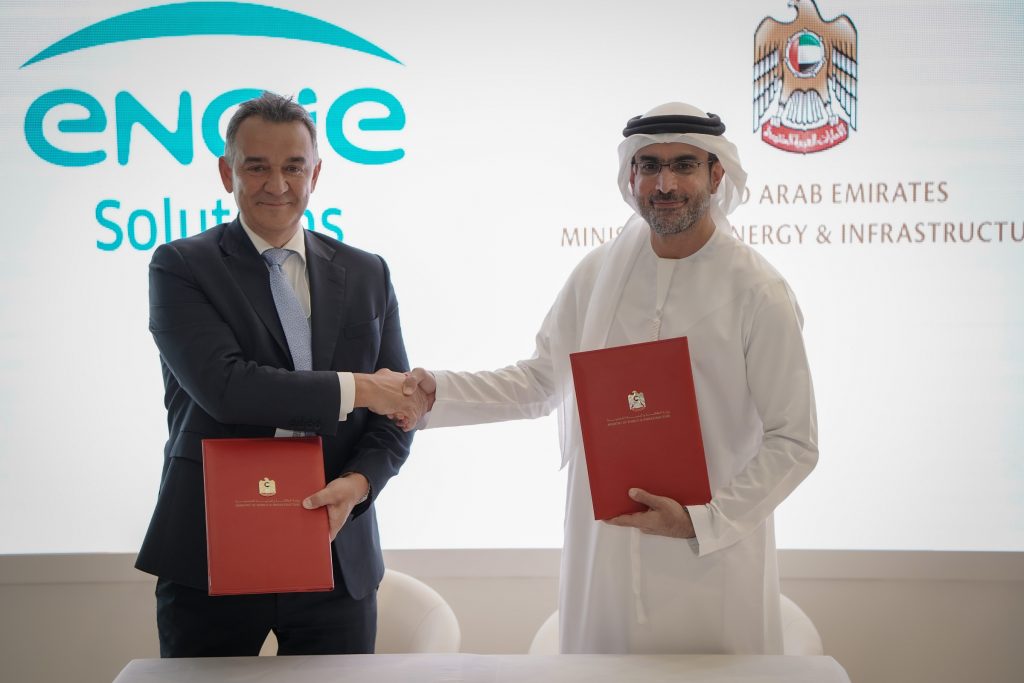The UAE Ministry of Energy and Infrastructure (MoEI) and ENGIE Solutions have signed a memorandum of understanding (MoU) to jointly develop a technical cooperation in generating clean energy projects on MoEI’s assets and exploring other energy-related CSR initiatives, ultimately supporting UAE’s decarbonization goals.
The MoU was signed by H.E Eng. Sharif Al Olama, Undersecretary of the Ministry of Energy and Infrastructure for Energy and Petroleum affairs, and Vincent Montanet, Chief Business Development Officer for ENGIE Solutions GCC, at the RAK Energy Summit. Organized by Ras Al Khaimah Municipality, the summit featured industry-level speakers from the energy sector to discuss the challenges and opportunities in dealing with climate change and the future of the energy sector.
Both parties recognize the importance of increasing the share of renewable energy in the country’s energy mix while inspiring innovations in the sector. Renewable energy development in the country offers various benefits that include economic growth and job creation, energy security and independence, national security, and reduction of greenhouse gas emissions.
H.E Eng. Sharif Al Olama said, “Developing renewable energy fulfills numerous national priorities, including helping tackle carbon emissions, create new high-tech jobs and inspire innovation. As the ministry in charge of energy development, we have an important role in developing the renewable energy sector. This project adds to UAE’s growing capabilities in the renewable sector; the UAE already hosts the largest single-site solar park in the world based on the independent power producer model. We will continue to pursue such projects in line with UAE’s renewable energy goals.”
Ian Harfield, CEO for ENGIE Solutions GCC said, “We are keen to support the UAE and the rest of the region’s transition to new means of energy sources and mobility. Our latest partnership with the UAE Ministry of Energy and Infrastructure extends our partnership with regional governments to support green energy and mobility projects. Such projects will positively impact the region’s challenges while fostering innovation in the clean energy sector.”
The Middle East is slowly shifting to green energy and sustainable solutions to combat global warming and diversify energy sources. The UAE, in particular, aims to achieve net-zero emissions by 2050 through the UAE Net-Zero by 2050 Strategic Initiative. The country began financing clean energy projects more than 15 years ago and has invested over US$40 billion in the sector to date. Current trends predict clean energy production capacity, including solar and nuclear, to reach 14 GW by 2030, up from about 100 MW in 2015 and 2.4 GW in 2020.




